Media

Why Strict GMO Regulation Stifles Innovation
New breeding techniques such as CRISPR-Cas are considered key to developing resilient crops, stable yields and reducing the need for plant protection products. ETH professor Bruno Studer warns that overregulating these technologies strengthens precisely those large agricultural corporations that critics seek to curb, while excluding smaller breeders and start-ups from the market.

A Superfood with Benefits and Challenges
Sweet lupin is Biovision’s “Superfood of the Year 2026.” It delivers high protein content, improves soils and supports biodiversity. Yet a closer look at agricultural practice shows that without breeding, crop protection and innovation, even this superfood remains a challenging crop.
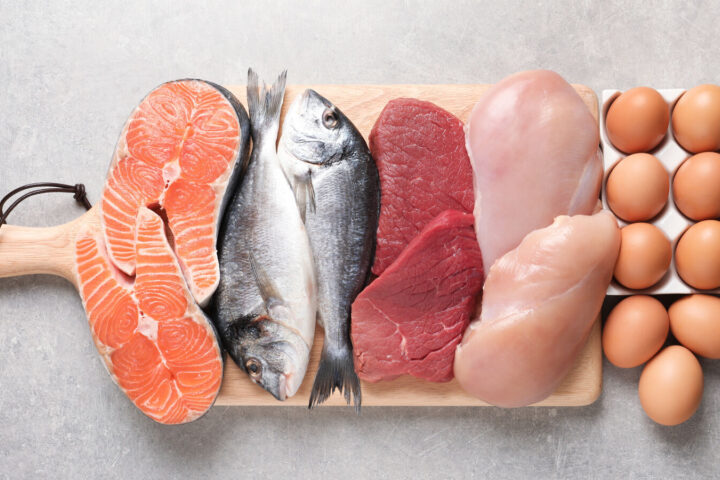
Sales bans due to PFAS: Should we be worried?
After spectacular sales bans on fish and meat due to PFAS contamination, consumers are asking themselves: How dangerous are these substances really – and what can still be placed in the shopping basket without concern?
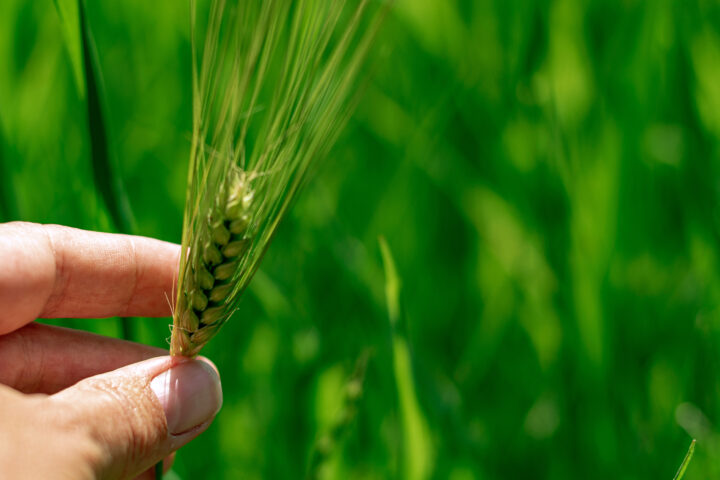
How German Experts View New Breeding Techniques
In hardly any other country is the idyllic image of organic farming cultivated in the public sphere as carefully as in Germany. Naturalness and rural authenticity are powerful mental refuges for many Germans. Against this backdrop, it is hardly surprising that resistance to new breeding techniques is strong – and that ignorance about the realities of organic farming sometimes appears almost deliberate.
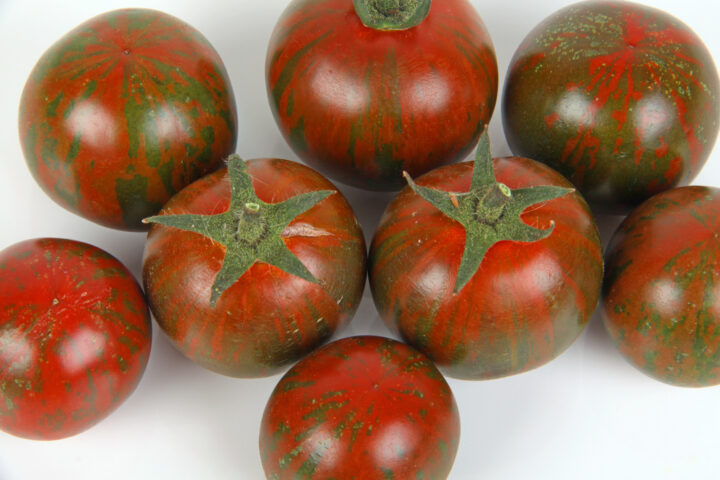
Why consumers accept gene-edited foods on their plates
Acceptance of gene-edited foods increases when the tangible benefits for consumers are easy to understand. A recent study by the Center for Food Integrity (CFI), conducted in collaboration with FMI – The Food Industry Association, shows that consumers evaluate technologies such as genome editing positively when they recognize clear advantages for health, the environment, or food security.
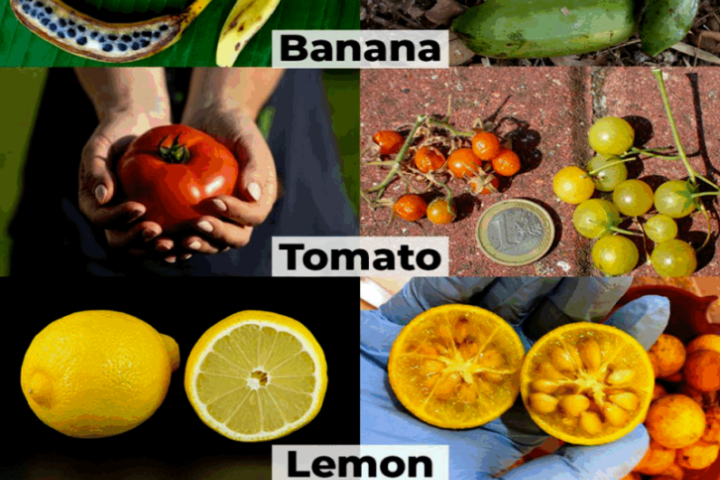
Beautiful and delicious mutants on your plate: The misunderstood world of crop improvement
When most of us hear the word mutation, the images that come to mind are not positive. We think of radioactive monsters, comic book villains, or genetic diseases like sickle-cell anemia. In popular culture, “mutants” are often synonymous with danger. Possibly the most famous are Marvel’s X-Men, who have enjoyed four big-screen incarnations and an enduring place among sci-fi movie aficionados.
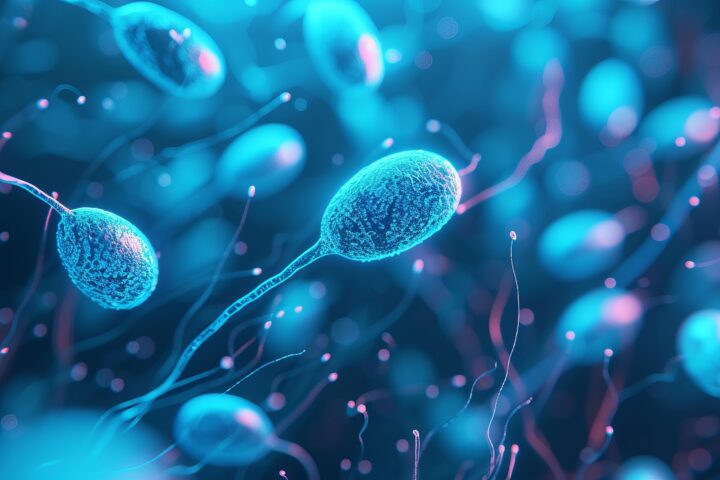
Sperm crisis with a question mark: what the Swiss study really shows – and what it does not
The state of Swiss semen appears worrying – unless you live slightly south of the city of Aarau. There, sperm quality among young men is reportedly the highest. The prime suspect is quickly identified: pesticides.
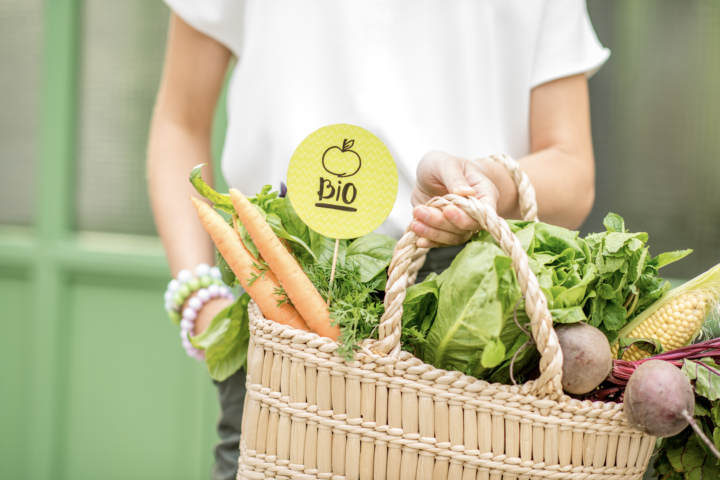
Old Stories Die Hard – when (organic) marketing blinds us to reality
An ORF documentary highlights what many organic enthusiasts don’t want to hear: mutagenesis is genetic engineering – and has been present in countless crop varieties for decades. Yet organic retailers like REWE and dm demand labelling requirements for new breeding techniques. Scientifically, this makes no sense.

Protein yes – vegan? Probably not.
After years of hype surrounding meat alternatives, enthusiasm for vegan diets seems to be waning. More and more restaurants are returning to meat. Consumers are also placing greater emphasis on pragmatism rather than sacrifice.
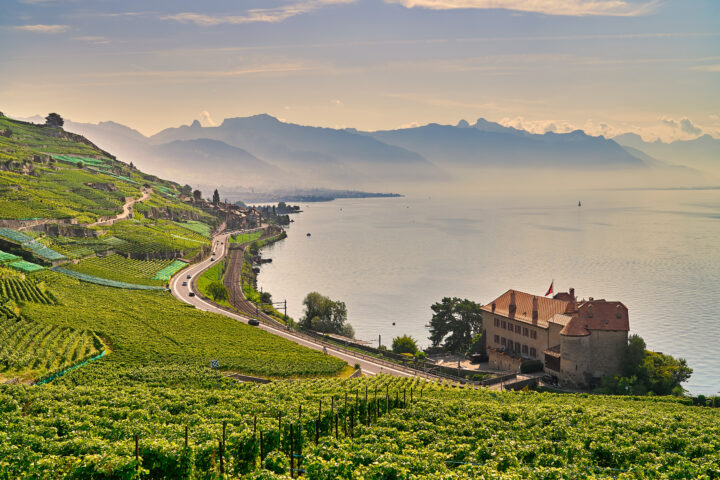
Triazole in Lake Geneva: Authorities give the all-clear
In late summer 2025, the news caused a stir: the substance 1,2,4-triazole – a chemical compound used in a wide variety of applications – was found in drinking water from Lake Geneva. Now the cantons of Geneva, Vaud and Valais have given the all-clear: the water is safe to drink.

'There is also a life before death' – Wine Pope Philipp Schwander on the Zeitgeist and the Activism of Health Authorities
The Swiss Master of Wine criticizes in an interview that wine is increasingly being demonized – contrary to scientific evidence and without any discussion about dosage and risk.
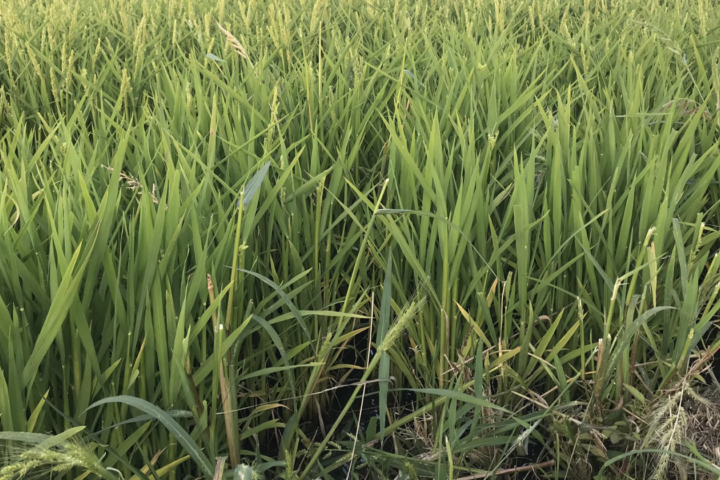
Sushi from Swiss Rice – Possible for a Few Years Now
Where once lamb’s lettuce and potatoes grew, a crop more commonly associated with Asia is now thriving: rice. What might sound like an exotic experiment has in some parts of Switzerland developed into a promising niche with a future.
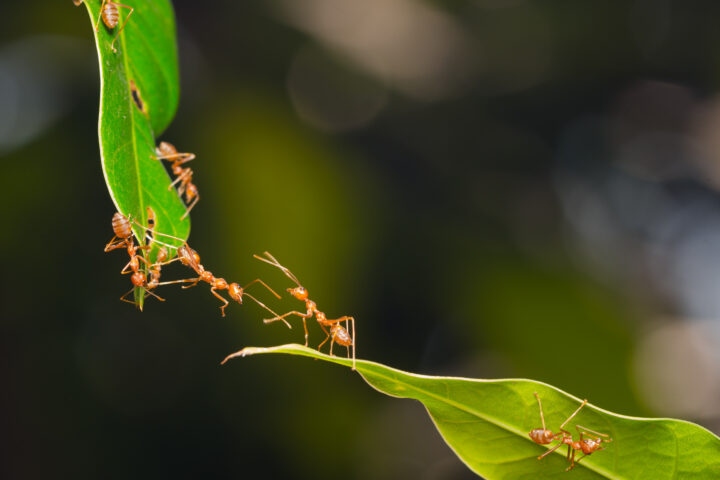
Ant infestation threatens Zurich communities
An invasive ant from the Mediterranean region is spreading rapidly in the canton of Zurich, threatening communities, construction projects, and agriculture. Insecticides could help—but their use remains severely restricted.

Genetic scissors for the future – soon in Switzerland too?
Genome editing is seen as a promising way to make agriculture more sustainable and climate-resilient. But Switzerland is hesitant to approve it. A popular initiative even wants to ban it. But what can CRISPR really do?

Less than 50 percent: How Switzerland is squandering its self-sufficiency
Swiss agriculture is under enormous pressure. Extreme weather conditions, pests and increasingly stringent regulations are putting producers under strain. As a result, self-sufficiency is falling dramatically, especially for plant-based foods. To ensure food security in Switzerland, effective plant protection products are urgently needed.

Only half the truth in the genetic engineering debate
Those who only see the risks remain blind to the opportunities offered by a new technology. Opponents of genetic engineering have presented a new survey on new breeding methods, which reveals some telling gaps.

«The FOAG is abandoning productive agriculture»
Increasing pests, missing tools, growing bureaucracy – the farmers' criticism of the federal government is loud and clear. Swiss agriculture is at its limit, reports Blick. The demand: effective plant protection products are urgently needed again.

Voracious Moth on the Rise
Once again, a new pest is making life difficult for Swiss farmers. The migratory cotton bollworm has been spotted in Switzerland again in 2025. It feeds on beans, corn, and other crops – with devastating effects on harvests.
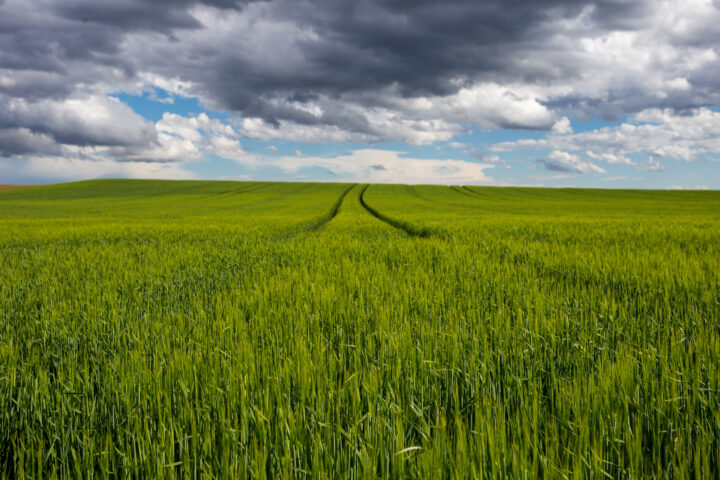
Mystery of Glyphosate’s Origins
For a long time, the answer seemed clear: agriculture was to blame. But new research turns this assumption on its head. A trail of clues leads from fields and garden fences deep into the wastewater system—and ends with a surprise.

Cultural heritage from the laboratory – is it time to rethink?
Would you drink laboratory-made coffee? A beverage that actually has nothing to do with coffee beans. Perhaps you would try it once? Or would you switch completely? These questions could soon be on your mind.

‘Highly processed’ is not a dirty word
The media repeatedly warns against ‘highly processed foods’. But are frozen pizzas and the like really that unhealthy? Not at all, according to nutritionist and professor emeritus Hannelore Daniel. Her appeal: stop badmouthing ready-made products across the board.

This insect poses an existential threat to German farmers
The reed glasswing cicada is spreading rapidly and threatening potatoes, sugar beets and other crops. Its bacterial pathogens cause massive crop losses. Germany is currently particularly affected, but there are also increasing signs of a growing threat in Switzerland.
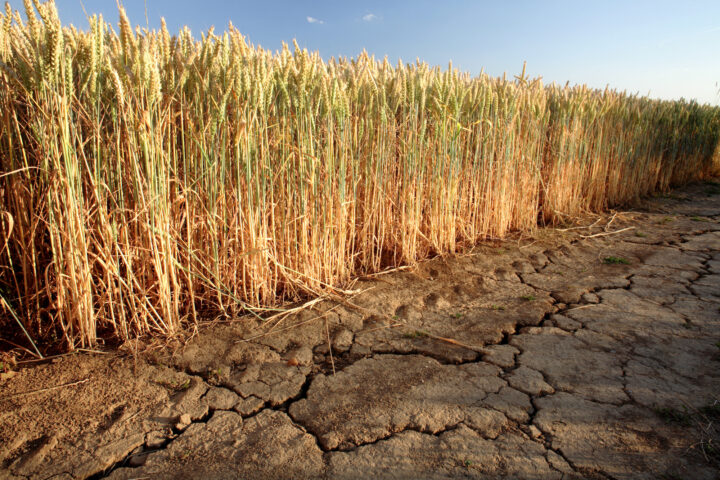
The opponents of green genetic engineering lack facts. Their anti-attitude is a dangerous ideology
Switzerland and the EU will decide on the cultivation of plants modified using new breeding technologies in 2025. Authorisation is sensible – and long overdue. After all, genetic engineering is already widespread.
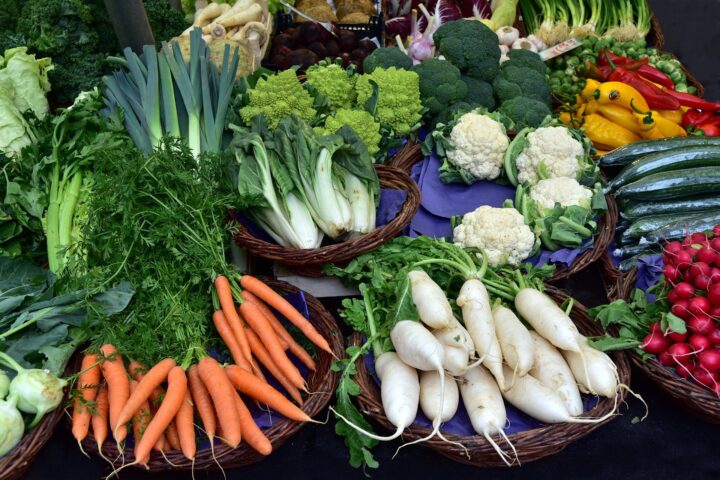
‘There is no such thing as chemical-free food – there never has been and there never will be’
Chemical residues in our food are a hotly debated topic in the media time and again. A glance at Austria shows that it is an illusion to believe that residue-free food production is possible. This is because residues come from both natural and synthetic sources. And the same applies to all of them: it is the quantity that makes the poison.

Why domestic cats threaten biodiversity
A ban on keeping domestic cats is currently being discussed in Scotland. The reason: driven by their hunting instinct, they are able to wipe out entire species of animals. The cat problem is also on the agenda in Switzerland.

Olive oil is becoming a luxury product – and rapeseed is in a tight spot
Olive oil is now so expensive that supermarkets in southern Europe have to chain up their bottles. Poor harvests in Spain and Italy have caused prices to skyrocket. Rapeseed oil could be an alternative – but precisely its cultivation is coming under pressure.

Broccoli and cauliflower in short supply – is there a hunger gap coming?
Extreme weather and pests are threatening the supply of broccoli and cauliflower in Europe – and Switzerland. The shortage is mainly due to last year's devastating floods in Valencia. These popular vegetables could become scarce, especially in spring. However, the industry is already working on innovative solutions.

Price explosion for coffee, cocoa and olive oil
The prices for cocoa, coffee and olive oil have reached new record levels in recent months. Consumers will be particularly affected in 2025 – they will feel the price increase massively. Innovations such as new breeding technologies or modern crop protection products could help – but for that, politicians would have to create the right framework conditions.
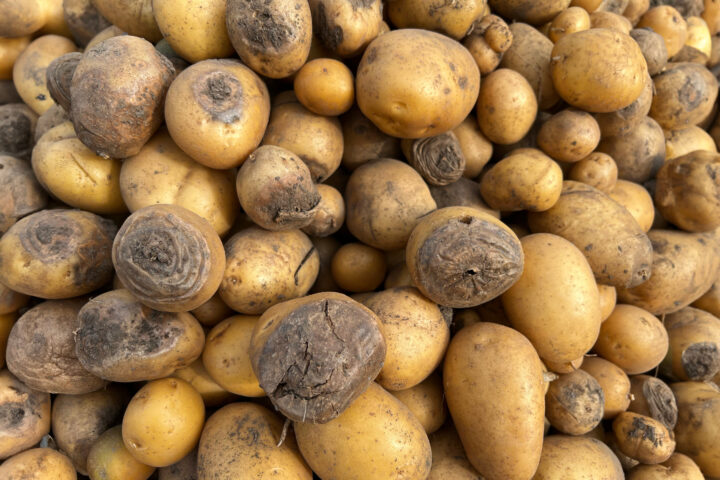
SRF Einstein on the potato crisis – more Steiner school than Einstein
The Swiss television channel SRF recently aired a one-sided report on the potato crisis in ‘Einstein’. The programme only mentioned climate change as a cause of the precarious situation and presented conventionally bred robust varieties as the only solution. Modern breeding technologies and crop protection were ignored.

Genetic engineering in agriculture – where is Rösti's openness to technology?
Genetic engineering in agriculture – where is Rösti's openness to technology?

ESG reporting: little has been achieved apart from expenses
The ESG criteria (Environmental, Social, Governance) are intended to guide companies towards sustainable action and transparency. Companies have to invest considerable resources in complying with regulations and preparing reports. The workload is constantly increasing. For many companies, these requirements are an enormous bureaucratic burden – with little or no benefit for actual sustainability.

Promoting healthy eating and preventing regional cultivation
There is a contradiction between nutritional recommendations and agricultural policy: the federal government wants us to eat more fruit, vegetables and plant-based proteins. At the same time, however, it is making it impossible for farmers to protect their crops.
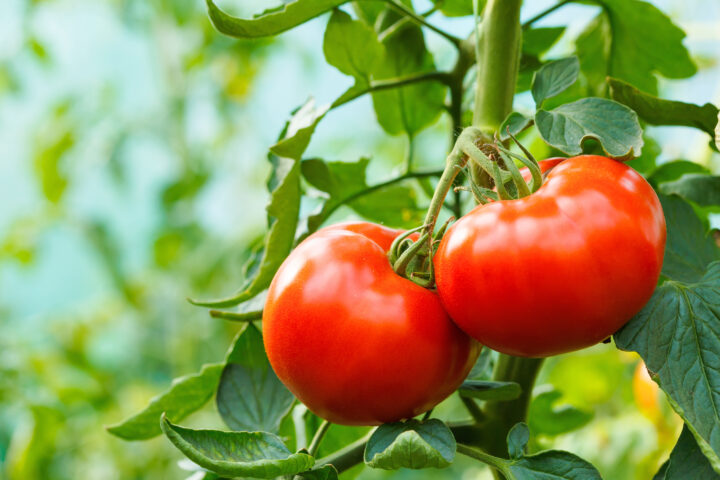
Imports instead of regionality: tomato virus destroys domestic production
Although tomatoes and peppers are among the most popular vegetables in Switzerland, most of them are imported. Extreme weather conditions and diseases are to blame. The first companies have already developed resistant tomato varieties – but the federal government remains sceptical of new technologies.
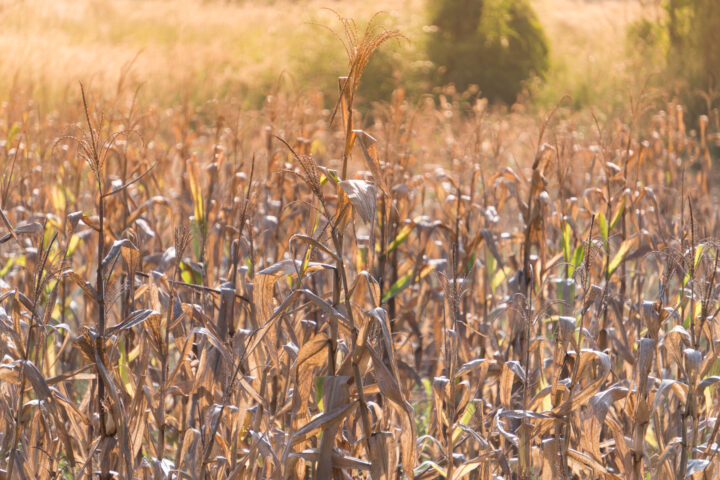
Catastrophic wheat harvest: Bad weather and restrictions on crop protection
The reports are piling up: 2024 will go down in history as the worst wheat harvest in decades. One of Switzerland's largest grain collection centres in Thalheim an der Thur suffers a historic loss.
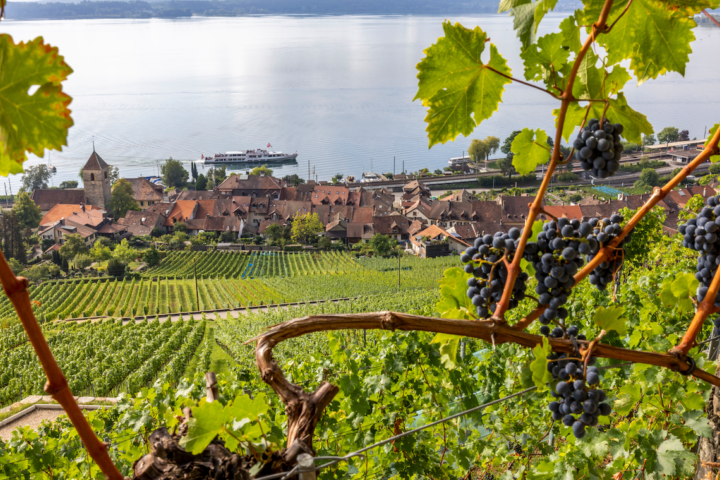
« The Bernese winegrowers spray and spray »
The heavy rainfall this summer has hit Bernese wine-makers hard and once again made it clear that crop protection is essential – especially in difficult growing years. The fact that fungal resistance also affects crop losses shows how precarious the situation is. Nevertheless, the federal government is hesitant when it comes to the authorisation of modern pesticides and new breeding technologies.
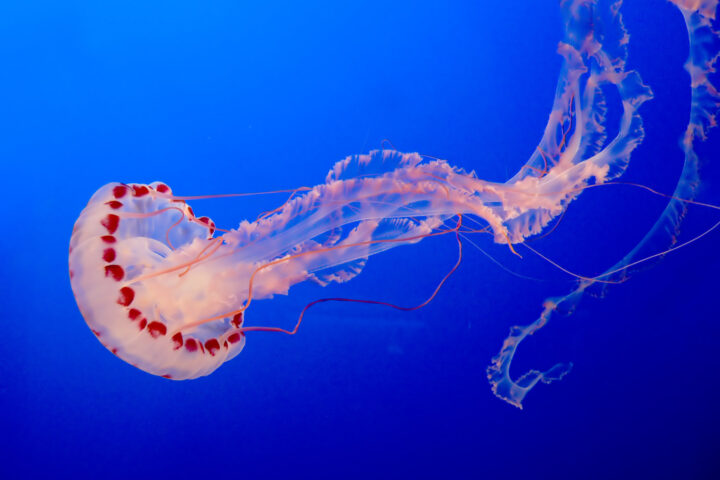
Why jellyfish could soon end up on our plates
Will jellyfish become the new star in the superfood sky? Experts recommend eating them and rave about the slippery sea creatures as a new source of protein. However, such products have yet to be authorised.

Precarious situation for potato farmers
Potato farmers in Switzerland are sounding the alarm. Due to all the rain, late blight is spreading and destroying their harvest. There is talk of disastrous conditions or a "fateful year" for Swiss potatoes. 300 hectares of potato fields have already had to be abandoned - and more could follow. In the meantime, the federal government has also drawn the first conclusions.

«Organic in this country, banned in the Philippines»
In the Philippines, Greenpeace has obtained a ban on Bt aubergines and golden rice. Incredibly, the same bacteria that the environmental organisation defames as dangerous there is being praised as organic in Switzerland.

«Thousands of children could die»
The ban on Golden Rice continues to make waves. More and more scientists are speaking out and denouncing the decision. The talk ranges from "alarming" to "catastrophe" to "dying children".

Clearing house for patent rights: Not in the interests of inventors and food security
On 22 May 2024, the Federal Council submitted a draft revision of patent law for consultation. A new clearing centre is planned to improve the transparency of patents in the field of plant breeding. While transparency is fundamentally positive, the chosen approach is problematic. Instead of the beneficiaries, it imposes new obligations on innovators and means that Switzerland is going it alone. This is a bad signal for innovative companies.

Tomato salad to combat vitamin D deficiency
Modern breeding methods can contribute to better health. For this reason, Bayer wants to use genome editing to breed more nutritious vegetables. In collaboration with the South Korean biotech company G+FLAS, tomato varieties are to be developed that are enriched with vitamin D3. Vitamin D deficiency is widespread and can lead to health problems such as rickets or osteoporosis.

Drink water without hesitation
Various mineral waters were tested for purity for the French consumer programme «A Bon Entendeur’». Residues of degradation products of the pesticide chlorothalonil were found in some of them. However, according to ecotoxicologist Nathalie Chèvre from the University of Lausanne, there is no cause for concern.

Chlorothalonil – communication with cost consequences
Once upon a time there was a canton in Seldwyla. In order to better regulate access traffic to a larger town, the canton decided to install so-called "gatekeeper systems" on the access roads, i.e. traffic lights that stop private traffic and thus access to the town by means of red lights when traffic in the town itself comes to a standstill.

Science resists ban on GMO crops
The Supreme Court in the Philippines wants to stop the cultivation of genetically modified plants Golden Rice and Bt aubergine (Bacillus thuringiensis). This is anything but well received by the government and the scientific community: The ban could jeopardise the country's food security.
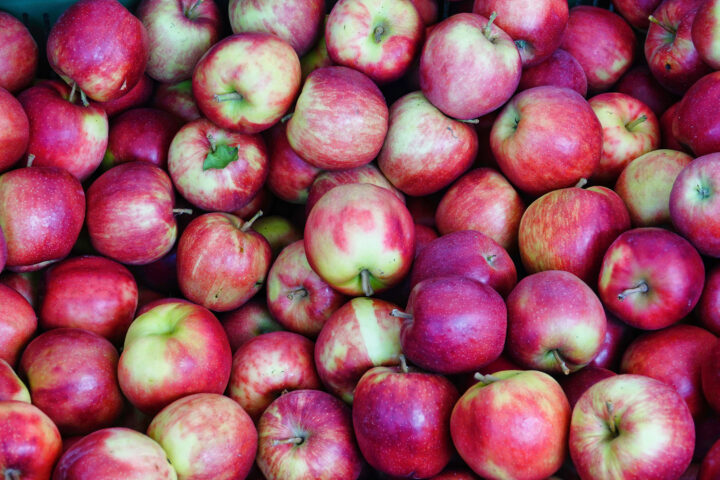
Where the focus lies in apple breeding
The new head of Agroscope's fruit breeding research group is Andrea Patocchi. In an interview with the trade journal Obst + Wein, he explains where the focus of apple breeding lies today.
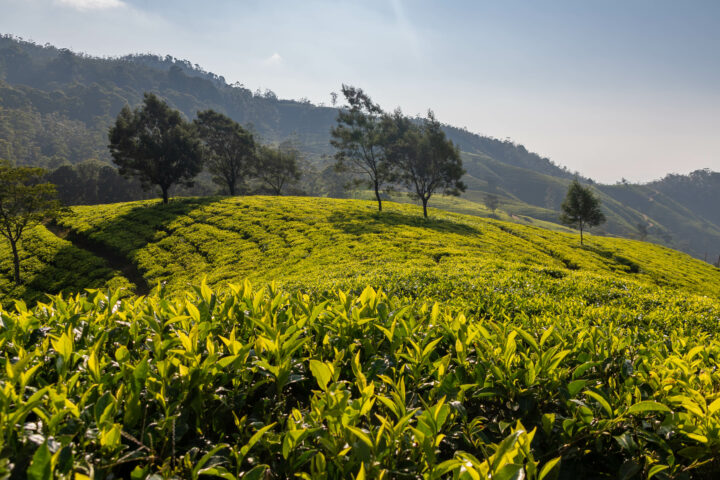
Chinese robot picks tea
There is a shortage of tea pickers in China. A robot developed by a researcher is set to remedy the situation and take over the work in future. Thanks to artificial intelligence, the machine can even recognise the shoots of the tea plant. The first harvesting robots are also already being developed in Switzerland.
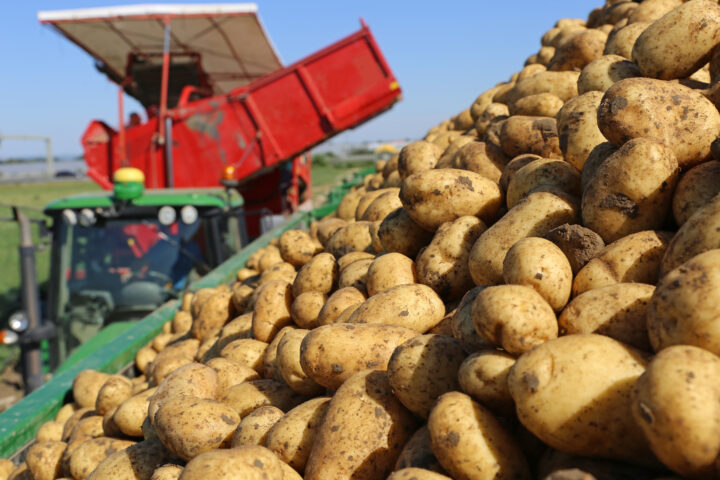
Potato farmers want robust varieties
As the use of crop protection has been massively reduced, the potato industry now wants to focus on more robust varieties. The industry has even concluded a target agreement with the federal government. This is ambitious: By 2040, robust varieties are to grow on 80% of potato cultivation areas.
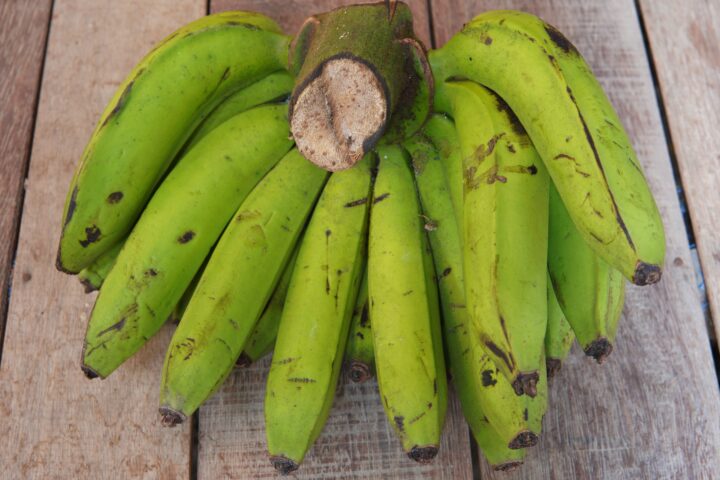
How genetic engineering is saving the Cavendish banana
The most popular banana variety - the so-called Cavendish banana - could soon disappear due to a persistent fungus. Australian researchers have developed a solution based on genetic engineering.
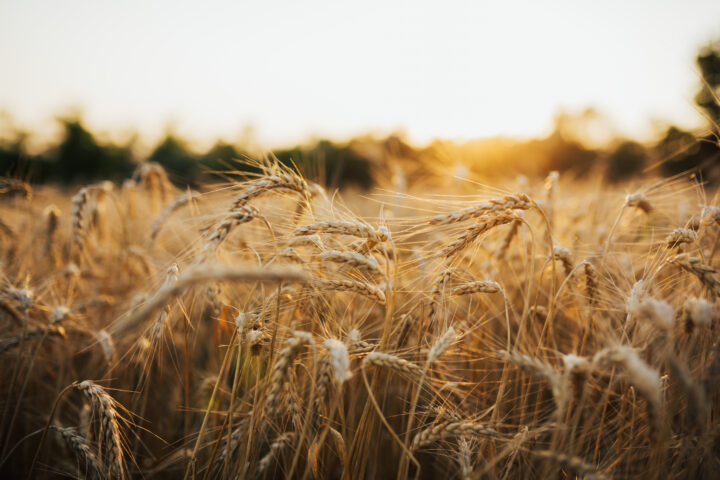
Will this field trial revolutionise barley production?
Switzerland's first field trial using plants from new breeding technologies will start this spring in Zurich. Specifically, the aim is to breed a spring barley that produces more grains per ear. If the trial works, the technology is likely to be of great interest to Swiss agriculture.
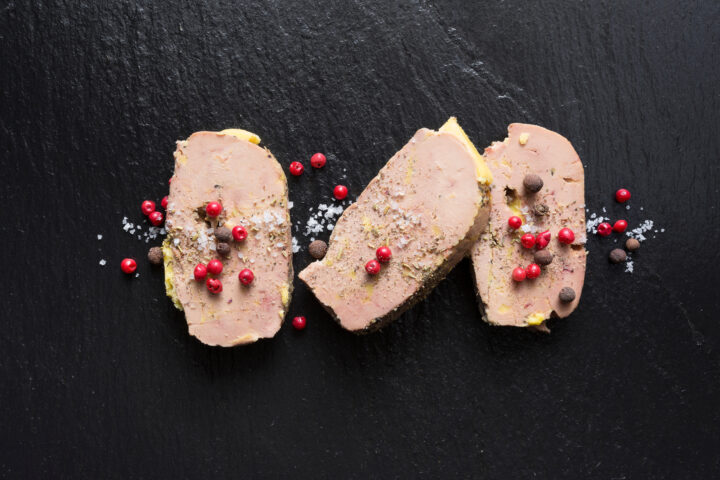
Foie gras without a guilty conscience
The term foie gras often has negative connotations. The reason for this is foie gras production, in which the animals suffer great suffering. After top restaurateurs developed recipes with unstuffed liver, Migros is now also offering «Happy Foie». This is an animal-friendly foie gras that is supposed to taste just as good as the original. Patents are used to protect the inventors.

Why trust in science is so important
It is essential that society has confidence in research. Only in this way can it realise its maximum potential and ultimately overcome social challenges such as climate change or a pandemic. But there are also critical voices: Some of the Swiss population has little or no trust in science. Four experts debated how research can gain people's trust at an «NZZ Live» panel discussion.
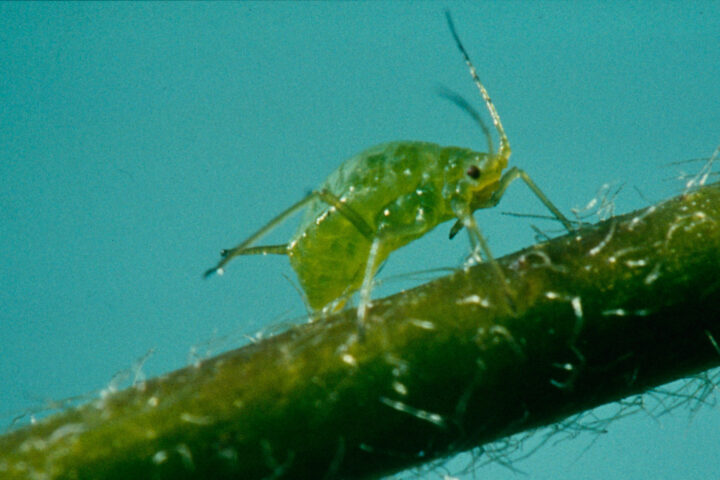
Crop protection products are in short supply - and soon the first vegetable varieties too
Vegetable producers are currently struggling. The reason for this is the lack of crop protection products . It is becoming increasingly difficult to bring saleable products onto the market. Some farmers are even reaching their limits to such an extent that they have had to stop growing certain vegetable varieties.
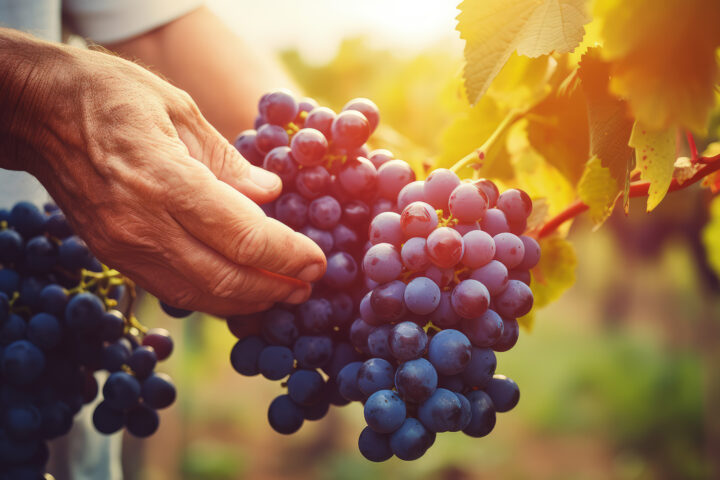
Pests increasingly threaten fruit, berry and grape harvests
Fruit, berry and wine growing is increasingly threatened by pests such as the Japanese beetle, the spotted wing drosophila and the Mediterranean fruit fly. Producers are sounding the alarm – but there is a lack of pesticides that can put an end to the pests.
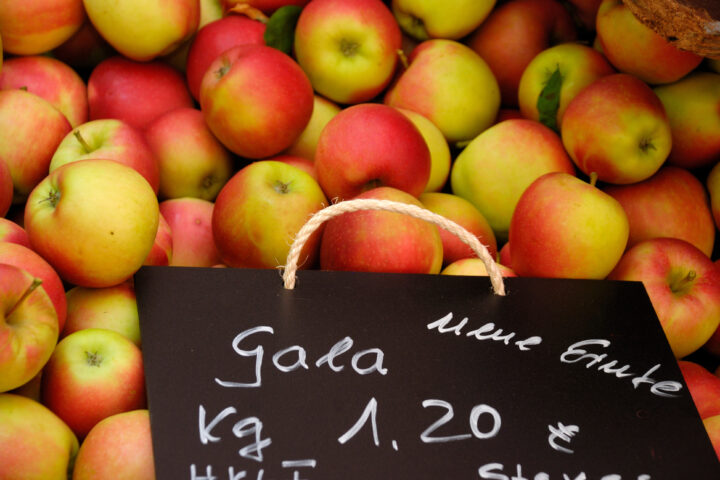
Organic farmer calls for genome editing for fruit growing
The high number of plant protection treatments is a major challenge for organic farmers. One of them is apple grower Marco Messerli from Kirchdorf BE. He has had to treat susceptible apple varieties with organic pesticides a total of 48 times. Too much, he thinks, and is now calling for the authorisation of new breeding methods. Experts agree with him.
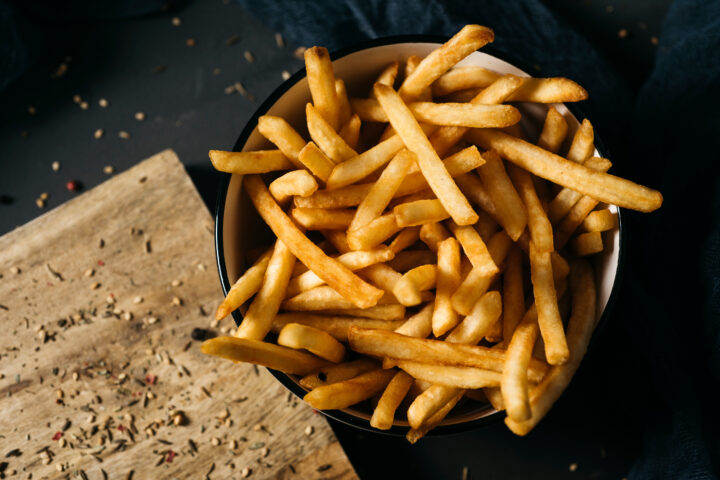
French fries are becoming scarce
A shortage of seed potatoes is looming in 2024. If there is a shortage of seed potatoes, the popular carbohydrate suppliers cannot be harvested. And because seed potatoes are in short supply throughout Europe, importing them will also be difficult. According to Swisspatat, varieties of French fries are particularly affected.
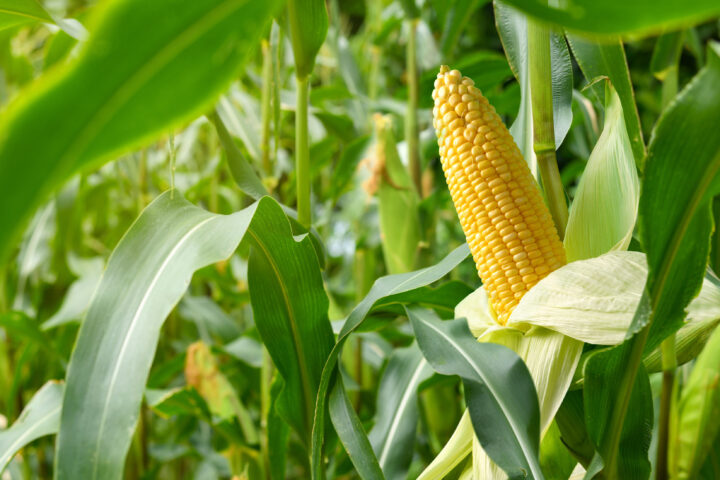
Agriculture between science and marketing
ORF's Eco Special examines the question of how plant breeding and genetic engineering work. The programme speaks plainly: All breeding is an intervention in the genes. Whether maize or carrots, ever since humans have been breeding, they have been changing the DNA of their seeds in order to produce plants with ever better properties. And products advertised as "GMO-free" have long since contained genetic engineering - even in organic products.

On the trail of POISONs
New 2023 data from Tox Info Suisse shows: Medicines and household products are primarily responsible for poisonings in Switzerland. Tox Info provided over 40,000 telephone poison counselling sessions last year. The statistics contrast with the media coverage. When the media talk about "poison", the focus is usually on pesticides. In the consultation statistics, however, products from agriculture and horticulture figure towards the bottom of the table with 2.2 per cent of consultations.
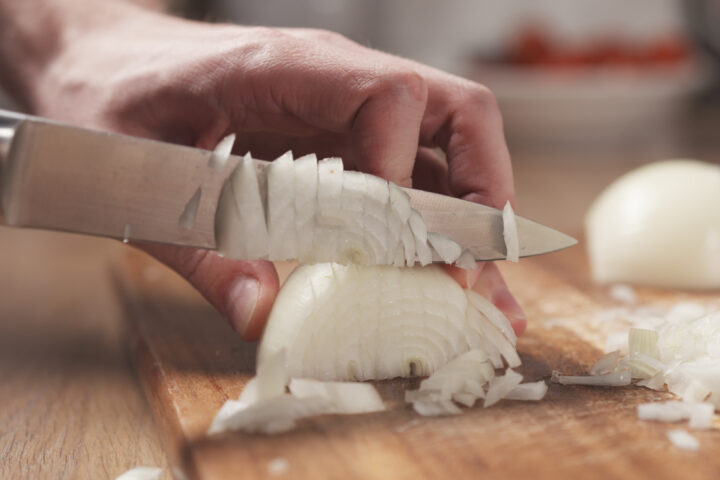
Cutting onions without crying
Onions are now available from Swiss retailers that should no longer cause tears when cut. The onions marketed under the name "Sunions" are significantly milder than the previously known varieties. It has taken over thirty years to achieve this using traditional breeding methods.
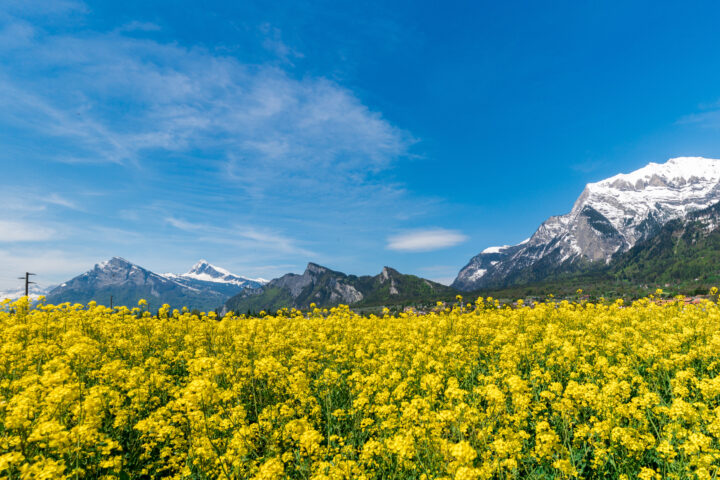
Why emergency authorisations are on the rise
Blick and Beobachter report that the federal government is increasingly approving emergency authorisations for crop protection at the request of manufacturing companies, suggesting that substances banned on the Swiss market are being reintroduced through the back door, so to speak. The story is as engaging as it is false. What is true, however, is that there are more and more pests for which no authorised products are available. The authorisation process is stalling.
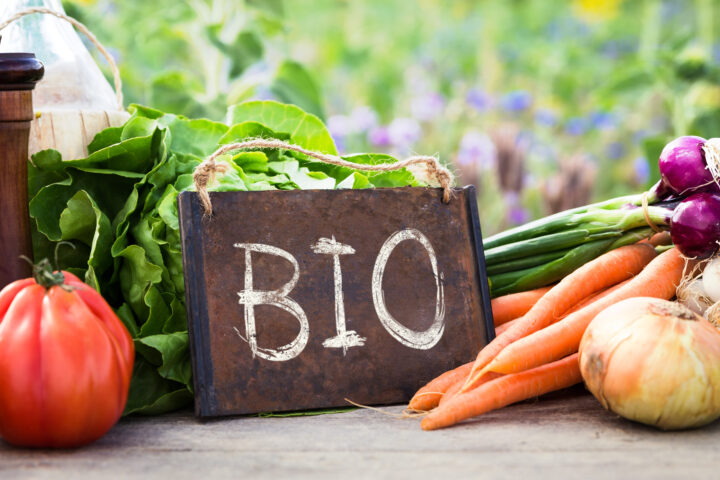
"Organic is not automatically healthier"
Can pesticides be found in urine if you only consume organic products? A journalist from CH-Media asked herself this question. She wanted to carry out a self-experiment to find out whether organic food is healthier. The results and the expert statements speak against it.

Using Crispr to combat climate change
In the Tages-Anzeiger newspaper, Nobel Prize winner Jennifer Doudna talks about the opportunities and risks of gene scissors. The tool can be used to specifically treat hereditary diseases, breed drought-tolerant plants and reduce greenhouse gas emis-sions from cows.
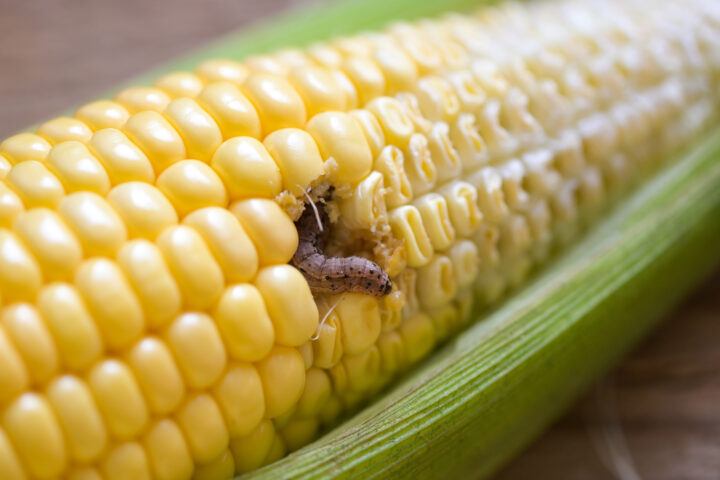
Anxious sweat as a cry for help
Plants live dangerously. They are surrounded by predators. But they are not completely at their mercy. Decades of research have shown this. For example, plants emit odours when attacked. This realisation could lead to new strategies for plant protection. However, it is still uncertain whether this will ever lead to a widely used product.

It pays to take a closer look
Pesticides are to blame for an increase in brain tumours in children in the Zürcher Weinland and the Bernese Seeland, according to a study carried out three years ago. Experts commissioned by the federal government have now come to a different conclusion: the results could also have been accidental.
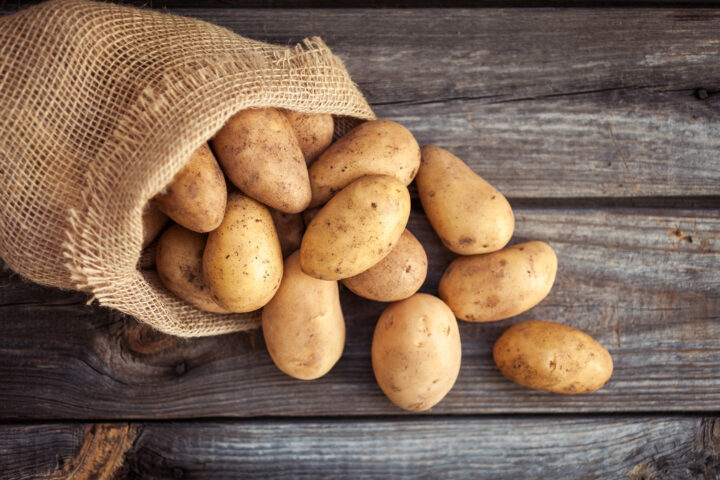
Potato shortage due to capricious weather and lack of crop protection
The potato harvest is not looking good this year. There is a shortfall of 100,000 tonnes, as reported by the Aargauer Zeitung. According to potato producers, this is a drop of 30 per cent compared to the long-term average.
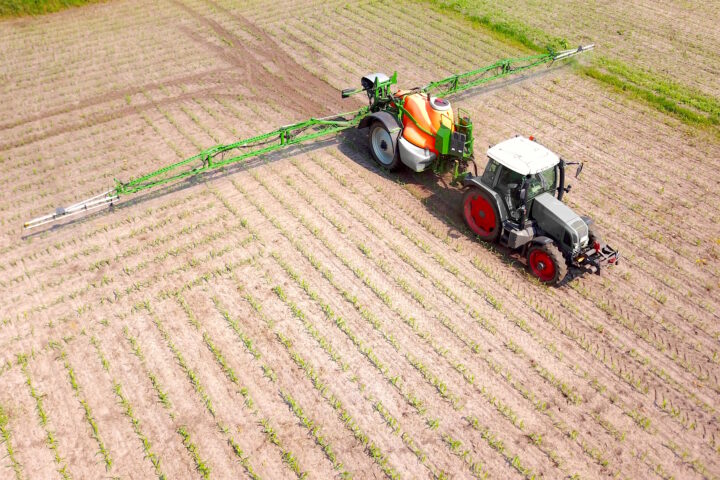
EU authorises glyphosate for another 10 years
The EU Commission has decided to endorse the assessment of the European Food Safety Authority, which found no critical problem areas regarding the effects of glyphosate on the environment and human and animal health. The EU Commission's science-based decision to extend the authorisation for a further 10 years is also a rejection of the scare campaigns by Greenpeace and Co.
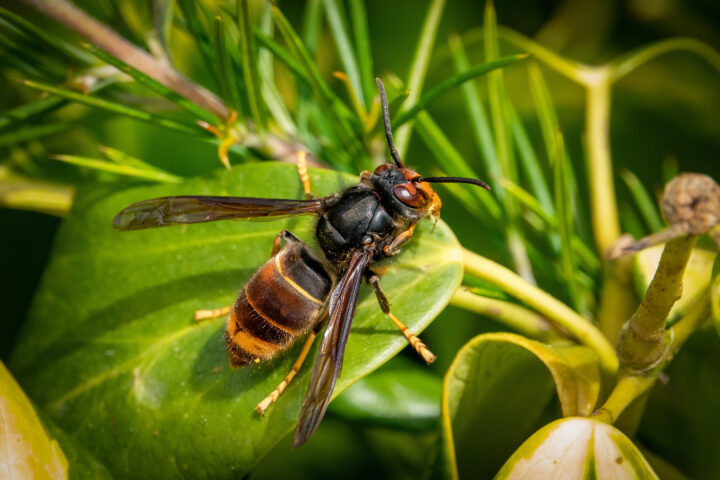
Asian hornet threatens native honey bee
More and more invasive pests are spreading in Switzerland. The most recent example is the Asian hornet, which poses a major threat to the native honey bee. But other invasive species also threaten agriculture and biodiversity. Control measures are many and varied. But pesticides (plant protection products and biocides) remain an important tool in the fight against the pests.
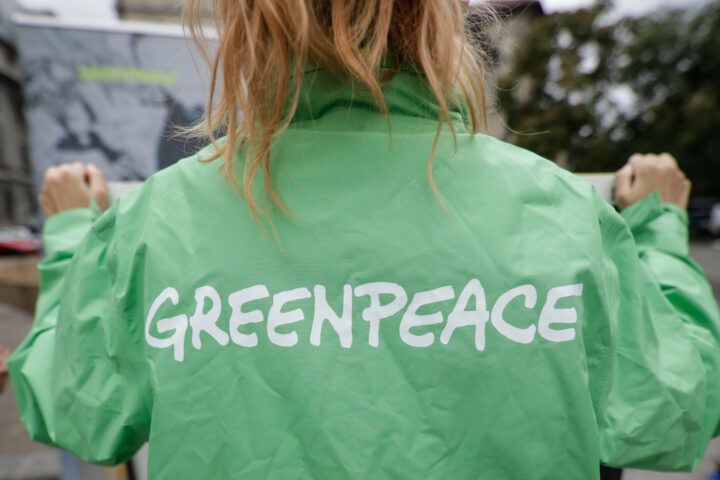
Greenpeace and the matter of facts
Greenpeace has been fighting bitterly against green genetic engineering for decades. SWR Wissen investigated why the environmental campaign organisation has become so entrenched in the issue and detached itself from scientific evidence. In the case of "Golden Rice", the consequences are particularly glaring. But alarmism also threatens to block important innovations in new breeding methods.
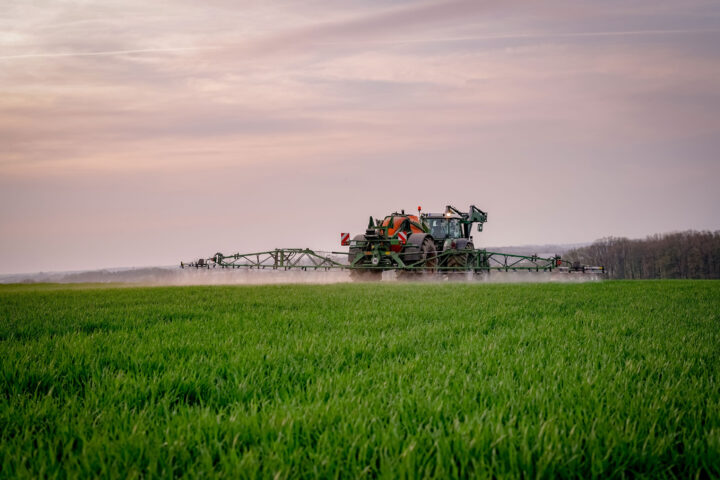
Unfounded Fears of Subtle Poisoning
In a compelling interview with Berliner Tagesspiegel, Andreas Hensel, a renowned Ger-man veterinary, and microbiologist, underscores the often-misunderstood perceptions regarding pesticide-related risks.
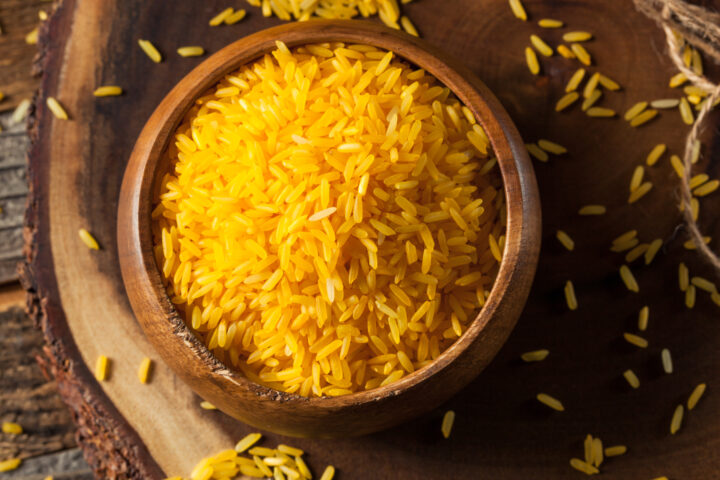
Gene Technology Obstacles Result in Lost Lives
The World Health Organization (WHO) believes that a staggering 500,000 children across the globe become blind every year due to a lack of vitamin A.
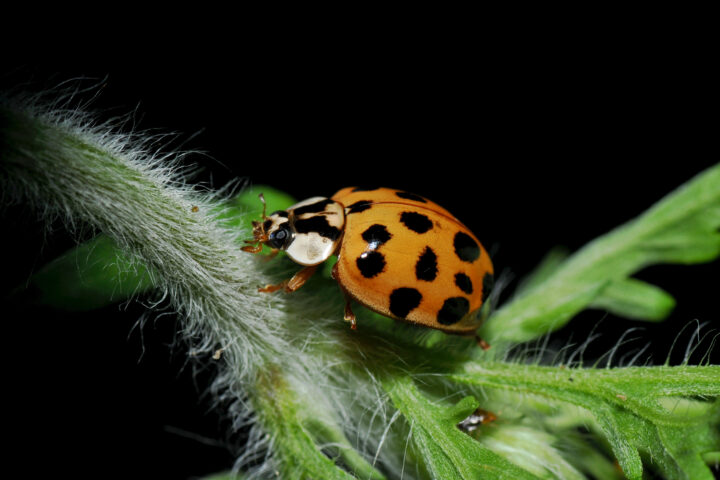
Invasive Species Play a Role in Species Extinction
The UN's Intergovernmental Science-Policy Platform on Biodiversity and Ecosystem Services (IPBES) has explored how invasive alien species contribute to species extinction. The report's findings are stark: Invasive alien species significantly threaten our natural environment, economy, food security, and health.
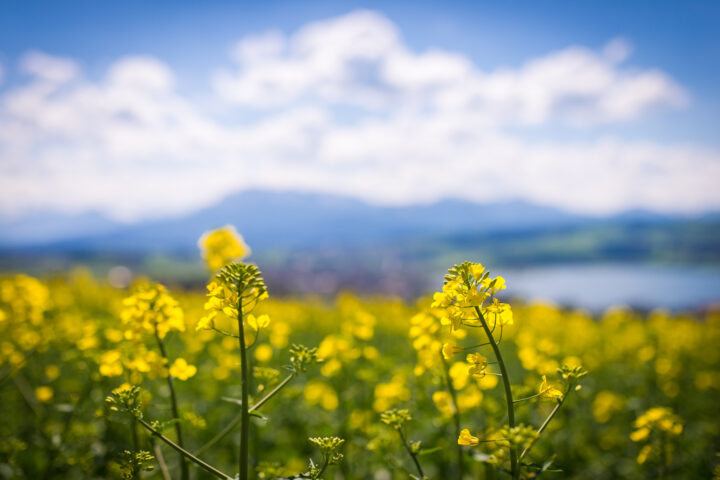
Swiss Rapeseed Oil Production at Risk
Swiss-produced rapeseed oil is in high demand, serving as a vital local alternative to imported palm oil for the country's food manufacturers.
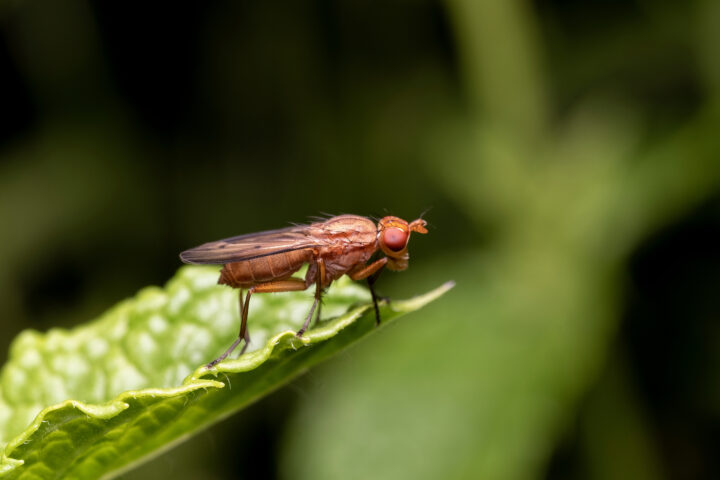
Cherry Vinegar Fly Endangers Switzerland's Traditional Tall Trees
Switzerland is witnessing a concerning decline in its traditional tall fruit trees. Not only is their upkeep labor-intensive, but the introduced cherry vinegar fly (Kirschessigfliege) has also wreaked havoc on their fruit.
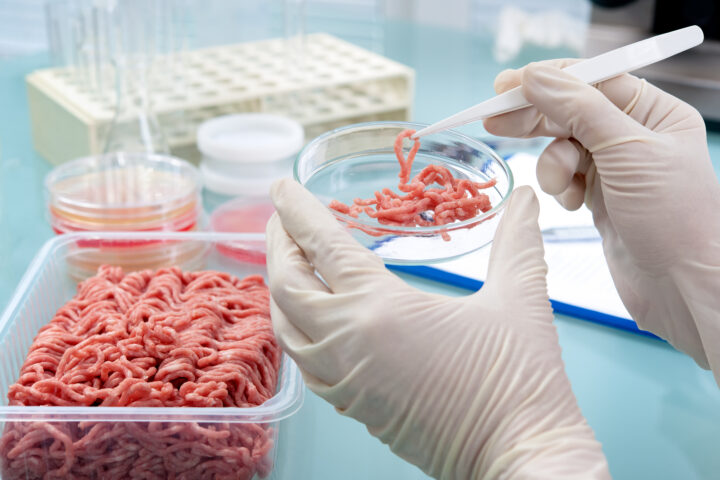
Lab meat soon in Swiss shops?
Research into alternatives to animal meat is in full swing. Cultured meat could be a resource-efficient source of protein in the future.
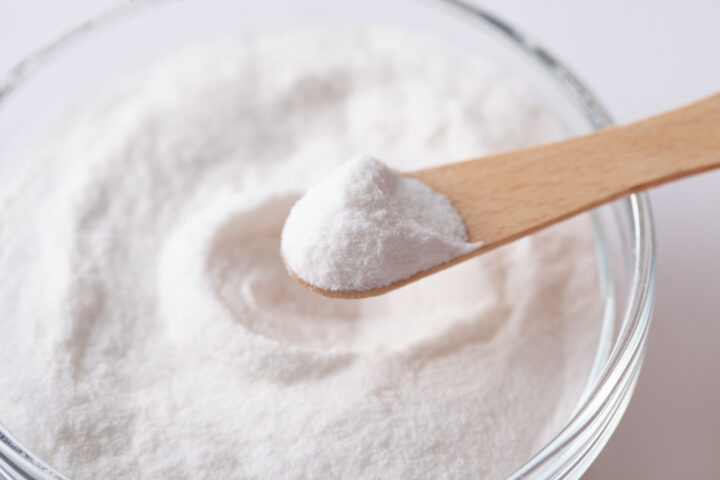
Moderate consumption of aspartame is harmless
According to researchers, frequent consumption of the artificial sweetener aspartame can cause cancer. This news caused some attention in the summer of 2023.
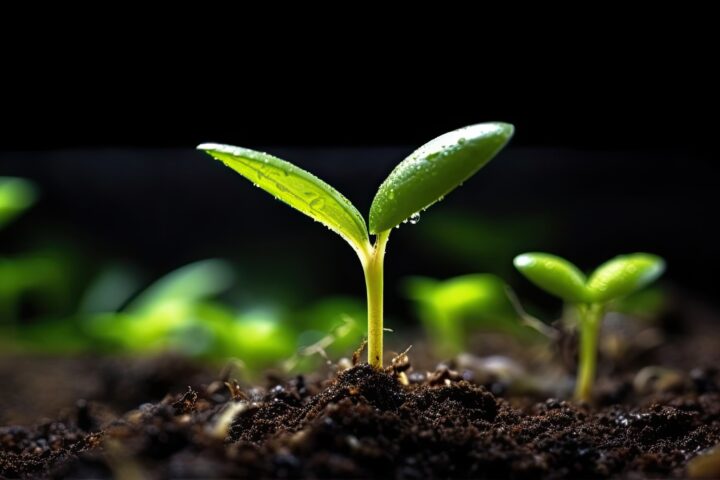
Genome editing: Organic farming shuts itself off from progress
In future, the EU wants to treat genome-edited plants in the same way as conventionally bred ones. As the "NZZ am Sonntag" writes, this is like a small revolution. Until now, the commercial use of gene scissors has been impossible due to an extremely restrictive genetic engineering law.
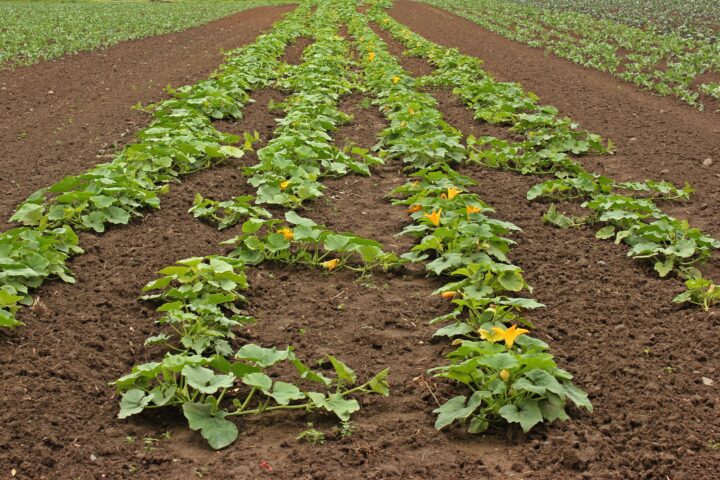
Class action lawsuit over pesticide ban
A proven seed dressing may no longer be used due to a decision of the European Court of Justice. As a result, the pumpkin harvest in Styria, Austria, has been almost completely destroyed.
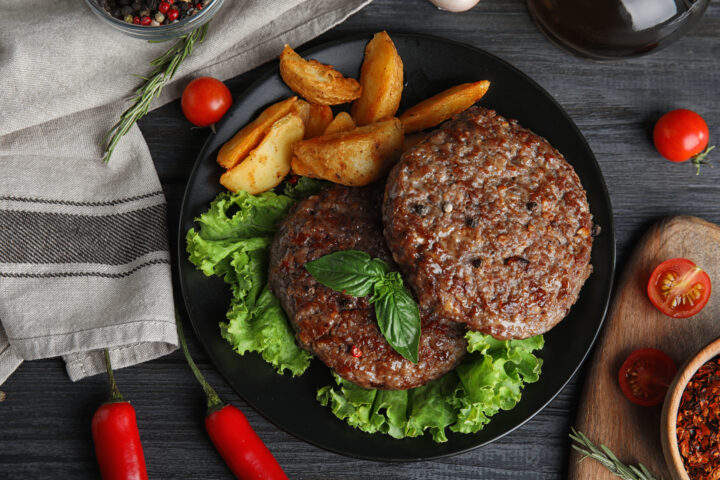
Lab-grown meat is approved for consumption in the USA for the first time – this openness to new technologies is also needed in Eu
Lab-grown meat could revolutionise nutrition. But in Europe it is partly banned as a precaution. Yet new technologies are essential if the world's population is to be fed without destroying the environment, writes Matthias Benz in the NZZ.
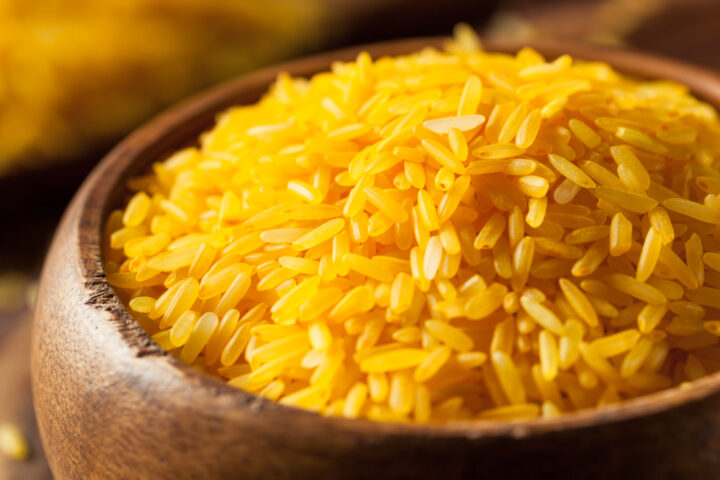
Environmental organizations put children's lives at risk
In the Philippines, the cultivation of Golden Rice has been temporarily banned. NGOs have obtained a cultivation ban based on scientifically untenable arguments. The poorest people, who could be protected from nutritional deficiencies by this rice, are the ones suffering the most. Martin Qaim, a professor of agricultural economics at the University of Bonn, strongly criticizes this renewed blockade and explains the background in the "Frankfurter Allgemeine Zeitung."
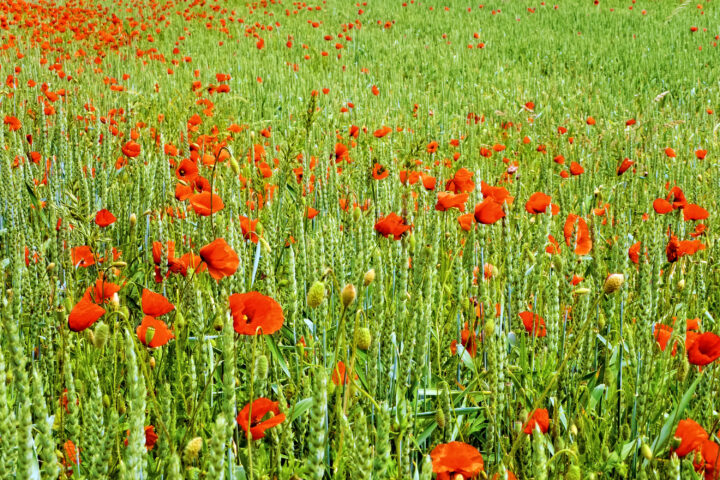
EU paves the way for gene editing
The European Union aims to regulate plants bred using genome editing techniques in the same way as conventional breeding methods. The European Commission plans to present a corresponding proposal for regulating new breeding technologies in early July. This move represents a significant step towards a more productive and sustainable agriculture in the EU. Switzerland should also re-evaluate genetically edited plants to avoid falling behind.
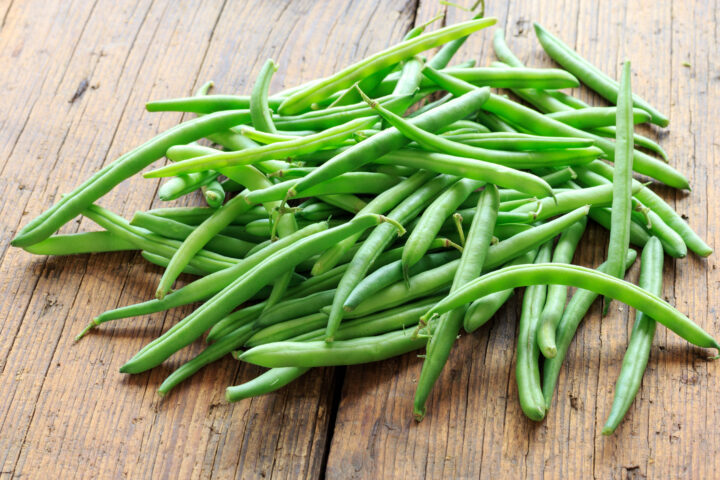
"Even with little processed food, you can cook yourself an unhealthy meal - and poison yourself fabulously"
Additives in food unsettle many people. But do thickeners and emulsifiers really harm us? Food chemist Daniel Wefers dispels prejudices - because some additives are actually beneficial for the body.
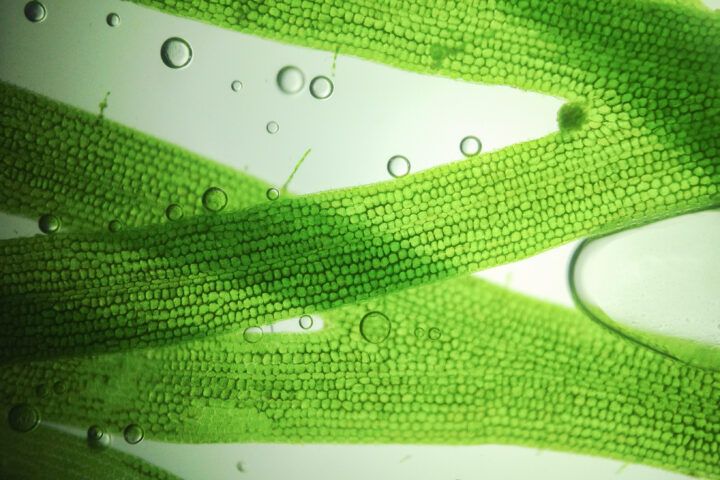
New Breeding Techniques: German Federal Minister of Research Calls for Green Light
The Federal Minister of Research has reiterated her demand to facilitate the application of new breeding techniques in Europe. As an example, she mentions the gene-editing tool CRISPR/Cas.
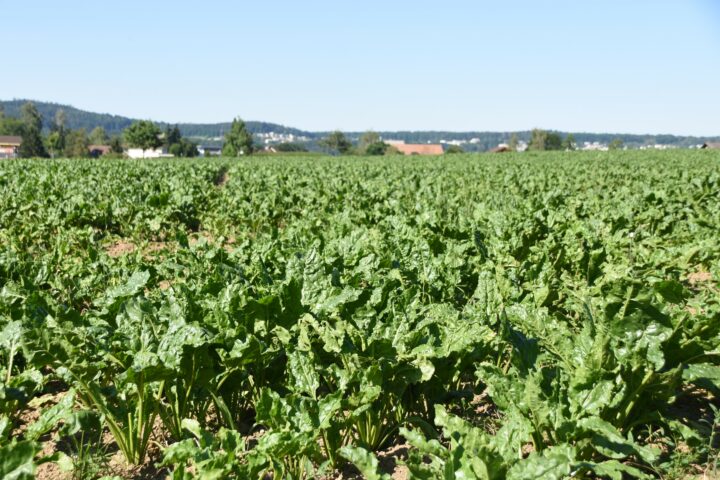
At Bio Suisse, appearances and reality diverge
Over the past decades, the umbrella organisation Bio Suisse has developed into an organisation with almost one hundred employees. In order to be able to achieve the quantities demanded by the retail trade and the high, also visual quality of conventional cultivation, Bio Suisse cannot avoid spraying areas with insecticides.
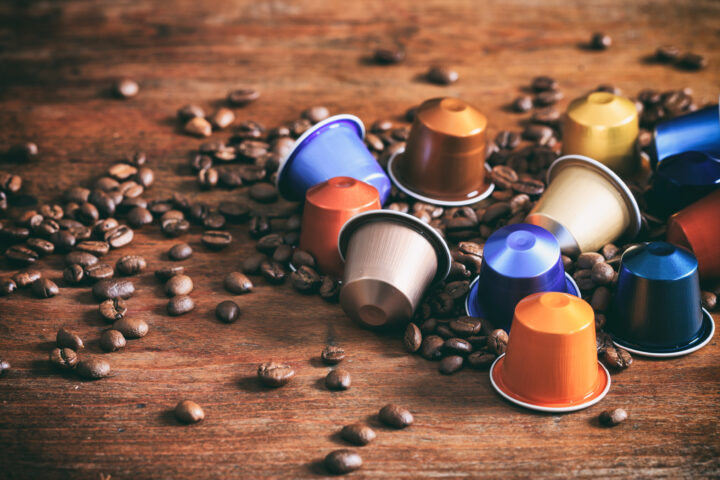
The EU's Misguided Ban on Coffee Capsules
The EU is contemplating a ban on coffee capsules, with a draft legislation already put forward by the EU Commission. Should this law pass, only compostable coffee capsules would be permitted.

Bio Suisse rejects modern breeding methods
At their meeting in April 2023, the delegates of Bio Suisse rejected the use of new breeding methods in organic farming. With this decision, the organic association closes itself off from the possibility of becoming more productive and sustainable through modern precision breeding, such as the incorporation of disease tolerance using the CRISPR/Cas gene scissors. As reported by the "Tages-Anzeiger," the decision of the delegates was clear, and there was no real substantive debate on the topic.

Milk from the laboratory - sustainability is decisive
Milk from the lab is on the rise. Nestlé sells artificial milk in the USA, and a Swiss entrepreneur produces cheese in the laboratory. This is reported by the SonntagsZeitung. According to a survey by the medium, most consumers are willing to try milk alternatives produced using genetic engineering. The differences in taste compared to conventional milk are said to be minimal. However, the sustainability of the products is crucial, which includes resource efficiency and price.
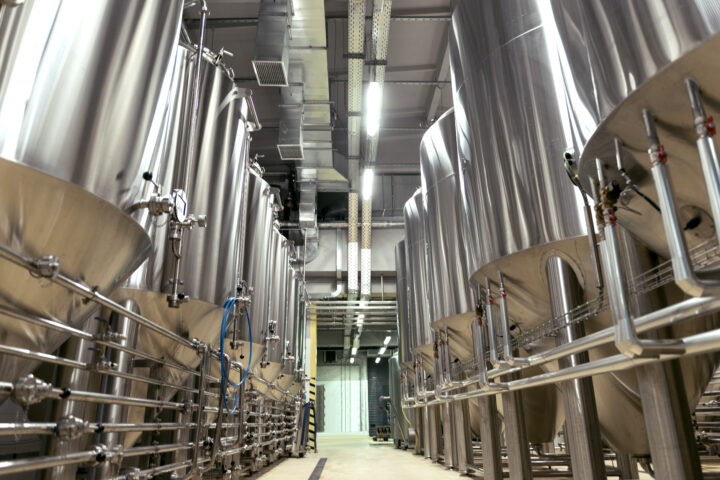
Will the food of the future be grown in a laboratory?
The global food system is currently responsible for approximately one third of all greenhouse gas emissions. Animal products, which require a large amount of land to produce, are one of the major contributors. For this reason, a number of start-ups are working eagerly on alternative protein products that require fewer resources and no animals, and are produced using industrial processes. After all, to feed more than nine billion people, all options and technologies have to be considered.
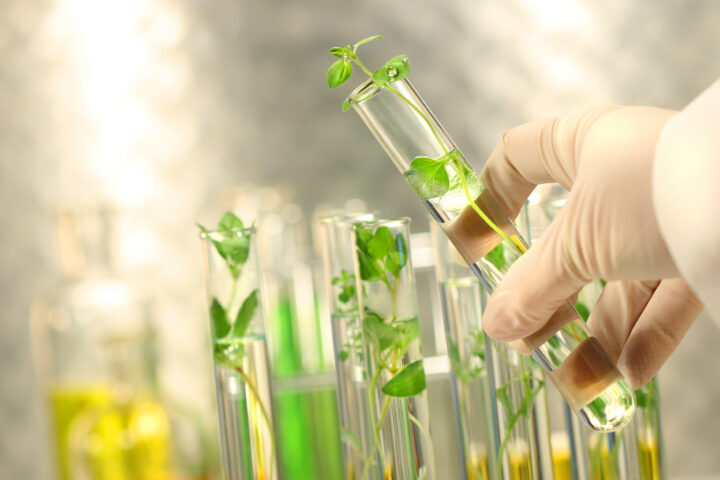
Precision breeding – England allows cultivation of gene-edited crops
A regulatory change in England allows the commercial use of new breeding technologies. Until now, these technologies had been regulated in accordance with the same restrictive rules as in the EU. As a result of the new law, English farmers are now allowed to grow crops that have been bred using genome editing. This gives England’s farmers a new tool in the fight against climate change and for more sustainable agriculture.
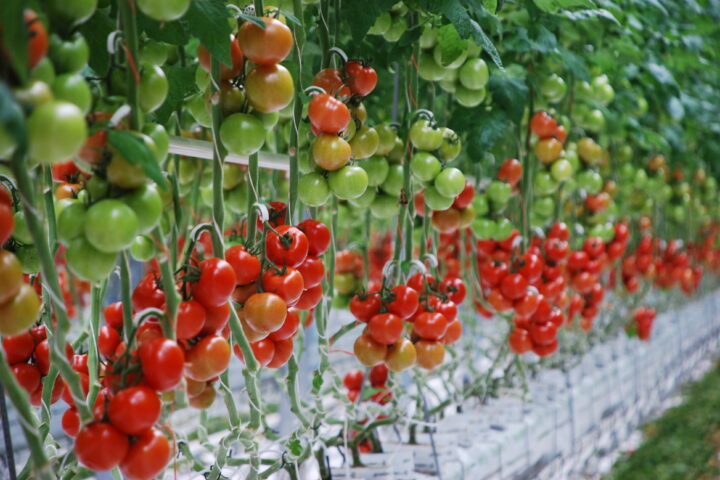
On the way to the optimal tomato
Whether as juice on a plane, pureed on a pizza or sliced on a sandwich, tomatoes are on everyone's lips. How the tomato variety comes about and how the tomato of the future tastes is shown in an article from the German "Lebensmittelmagazin".
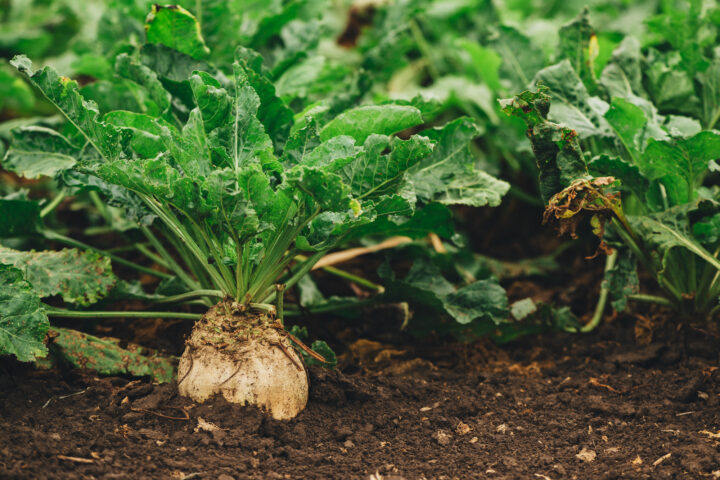
Sugar in Switzerland: Considering all aspects
The federal government has pledged to reduce sugar intake in Switzerland. Going forward, a wide variety of food products are to contain less sugar, or be labeled with their sugar content. This has put sugar beet cultivation under pressure. Yet “the dose makes the poison” also applies to sugar consumption, so there may still be a meaningful future for sugar beet growing in Switzerland.
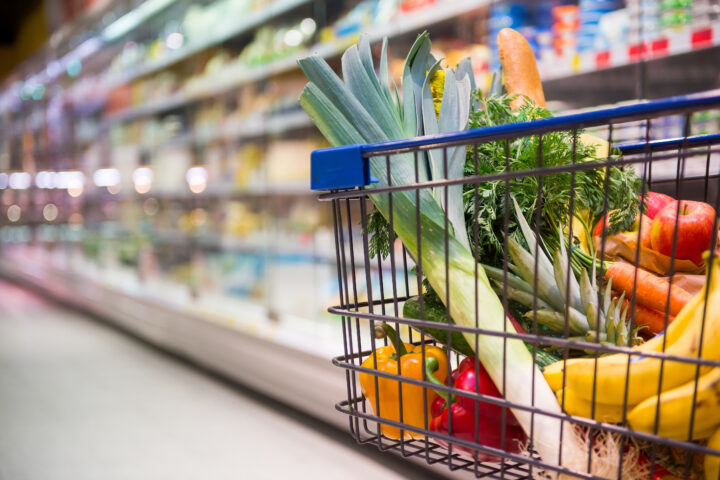
The Return of Price Sensitivity
In the past few years, consumer attention has centered on organic and high-end products, with eco-friendliness serving as a key decision-making factor. Now, rising inflation is shifting that focus. Increasingly, price is taking center stage, a trend highlighted by the growth in sales of more budget-friendly brands.
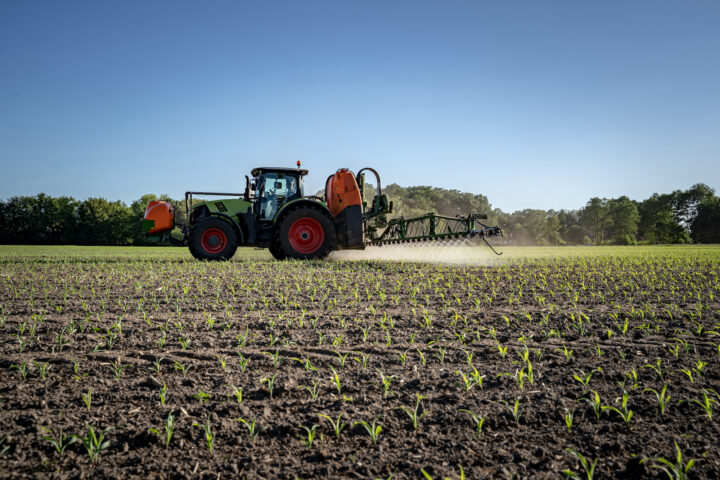
Pesticide cuts
In Switzerland, a growing number of pesticides are being banned by the authorities. At the same time, there are almost no new ones entering the market. The regulatory authorities are severely overstretched. Things cannot go on like this. Every product that disappears from the market increases the risk of pests developing resistance and of crops failing.
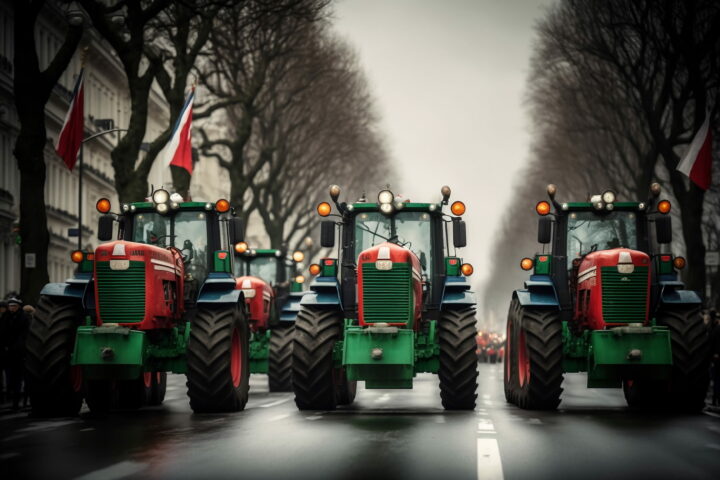
Farmers demonstrate against pesticide bans
French farmers have called for a large demonstration. Between February 8 and 20, 2023, farmers will drive their tractors into the heart of Paris to protest against the gradual decline in French agricultural production. The farmers have an ever-decreasing number of pesticides at their disposal to protect their crops.
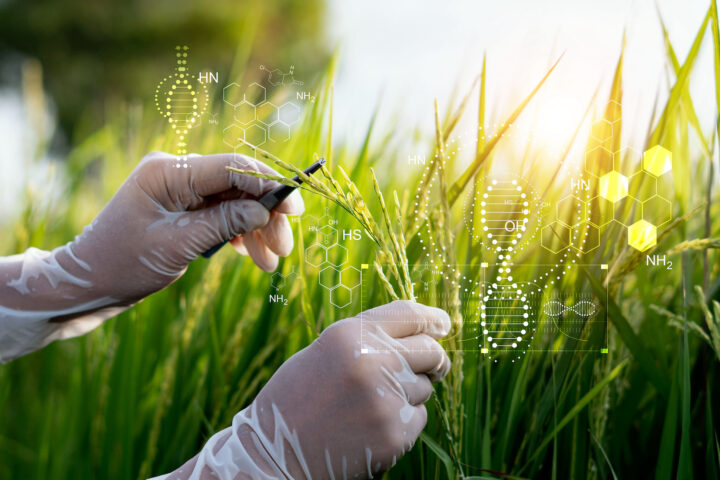
Genome research for sustainable crop protection
A research consortium of industry and public researchers in England has published a genome database of the most common insect pests in the United Kingdom. The open-source database has been set up to help with the development of targeted and environmentally friendly pesticides.
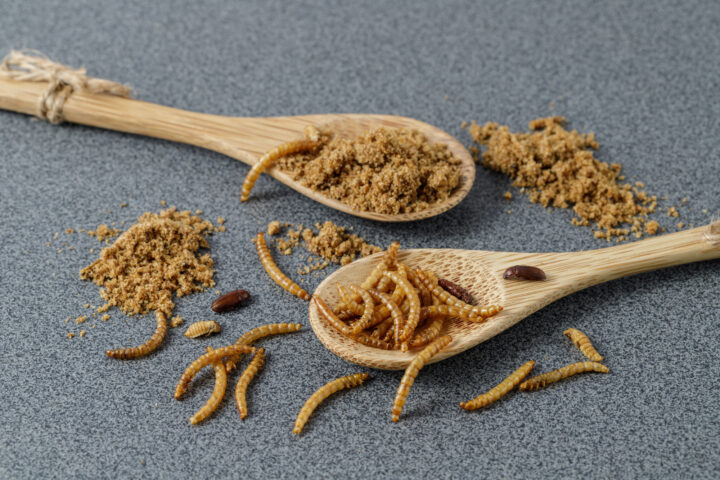
EU approves insects as a food ingredient
At the end of January 2023, the EU approved two new insect species as novel foods. For example, house crickets and lesser mealworms in specific forms may now be marketed as a food ingredient in a number of food products. Certain insects are also approved for use in food processing in Switzerland and have long been considered an environmentally friendly source of protein.
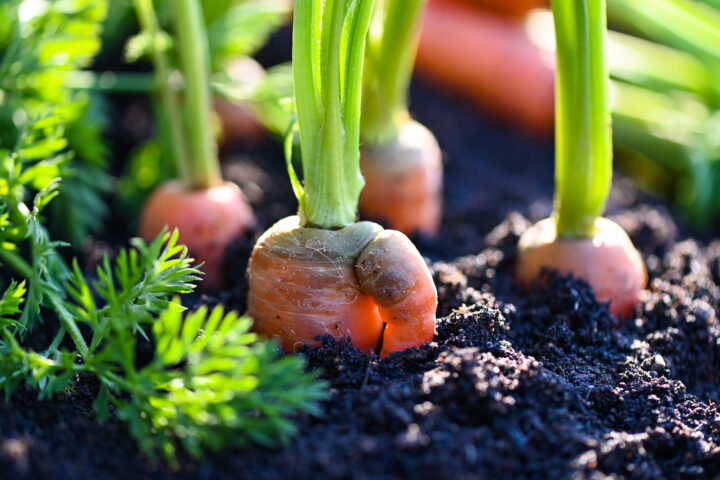
Is organic more ecological?
A study by the Technical University of Munich (TUM) posits that organic farming causes significantly lower environmental costs than conventional farming. However, agricultural economist Herbert Strübel disagrees, as the significantly lower yields of organic farming are not included in the calculation.
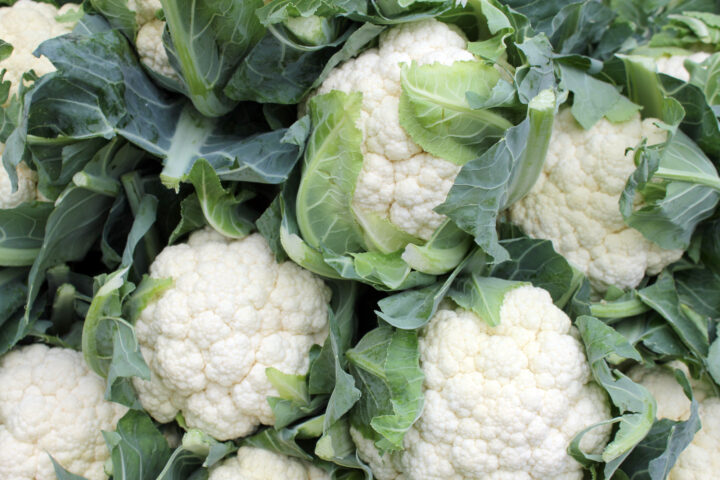
Dramatic drop in approved pesticides
Fewer and fewer pesticides are available to Swiss farmers. Many active ingredients are disappearing from the market. At the same time, the Swiss authorities are approving very few new ones. The Swiss farmers' association warns against new measures. Otherwise, a decline in domestic food production may ensue.
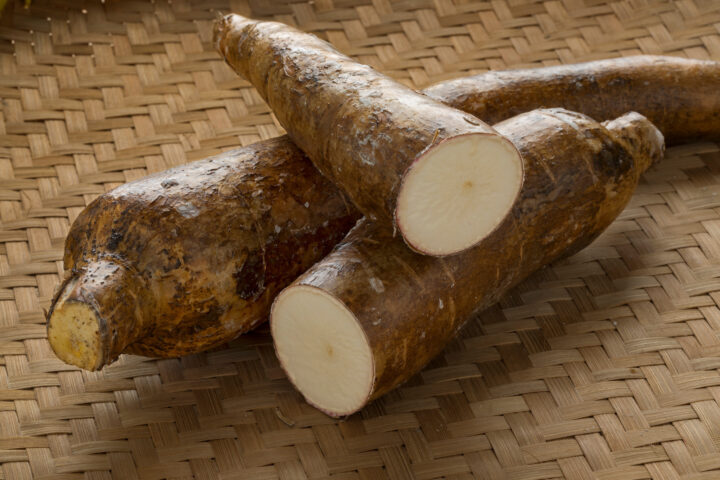
Industry-funded research increases the yields of important crop plants
Grains such as rice, wheat, and corn provide the majority of the calories consumed across the globe. Crop plants such as tef or cassava, on the other hand, have previously been rather overlooked. However, research progress has now made cultivating them a more attractive prospect. This is particularly important given climate change.
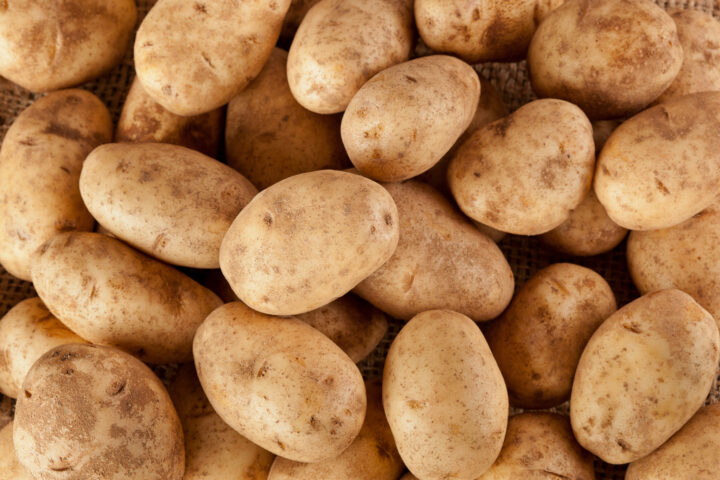
Biotech Breeding in Africa: A New Hope for Small-Scale Farmers
For potato farmers globally, late blight has been a persistent foe. While European farmers battle it, in Africa, the repercussions are often more devastating due to limited resources. Yet, there's newfound hope.
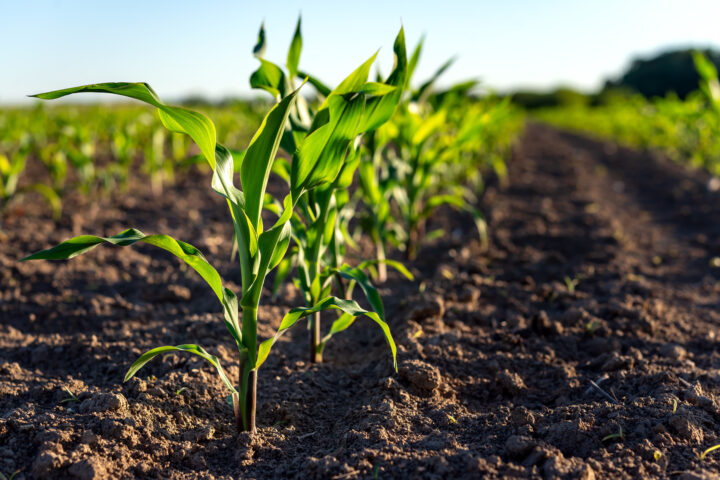
700 Pesticides Await Regulatory Approval
In Switzerland, a significant backlog of pesticides is pending approval from regulatory authorities, who are struggling to keep pace with the demand. This delay has serious implications for both the agricultural sector and environmental sustainability.
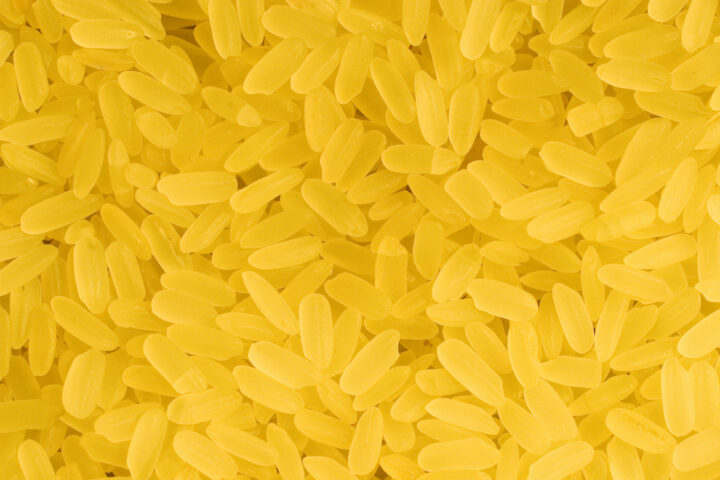
Philippines: Farmers Harvest the First Golden Rice
The world’s first Golden Rice harvest recently took place in the Philippines. The rice is enriched with a beta carotene gene, which can be converted into vitamin A in the human body. The aim is to bring an end to the widespread vitamin A deficiencies in developing countries. But there has been and still is massive resistance to growing it.
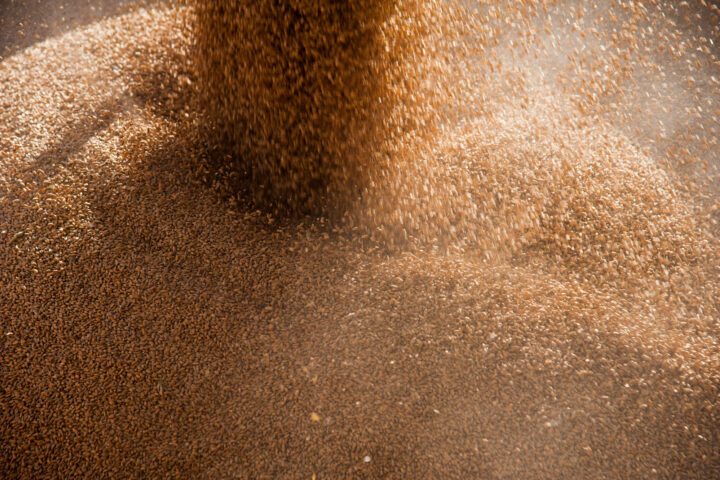
Supply Reliability Increasing in Importance
The Swiss are satisfied with the state of domestic agriculture. However, supply reliability has become more important. These are the findings of a representative survey that the Federal Office for Agriculture published with its Agricultural Report 2022.

40% drop in yields: Does this spell the end for turnip lanterns?
The traditional Räbeliechtli (turnip lantern) parades are taking place again in November. However, according to the “Aargauer Zeitung”, farmers are finding it increasingly difficult to produce the turnips. As key plant protection products are being taken off the market, the turnips are less and less well protected against pests and diseases.
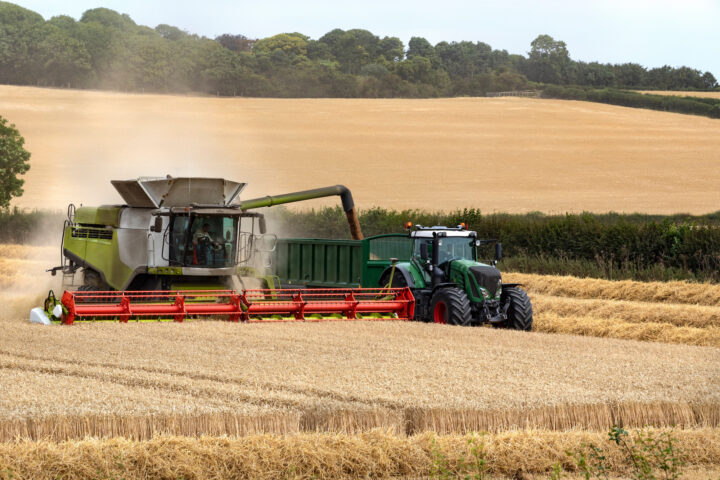
Genome editing: United Kingdom on its way to the top
The British Parliament is planning to pass a law that will provide new legislation for new breeding technologies, such as genome editing. This new legislation will pave the way for Great Britain to become a leading figure in agri-food research.

